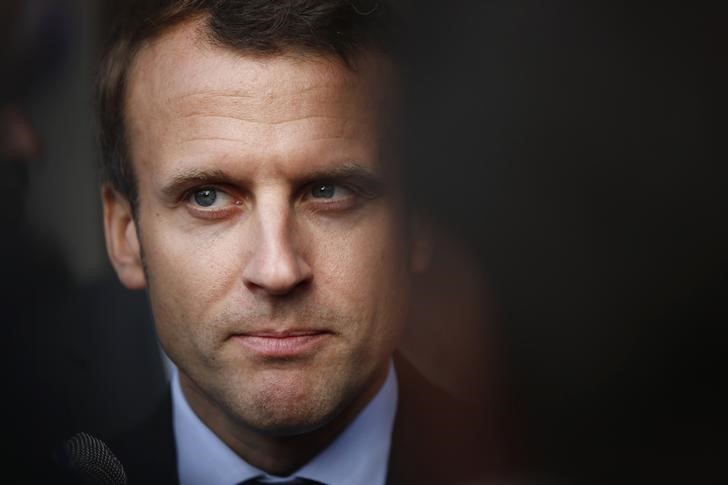PARIS (Reuters) - France's public finances can no longer diverge from those of lower debt countries like Germany without threatening the euro zone, France's independent public audit office warned on Thursday.
The independent Cour des Comptes urged President Emmanuel Macron's government to make a bigger effort to rein in the public finances as it prepared to bring a new round of costly inflation-relief measures before parliament.
In an annual report on the outlook for the public finances, the auditor said that government's forecast for a public sector budget deficit this year of 5% of GDP was vulnerable to health and geopolitical risks that could hit growth and inflation.
That in turn could squash hopes of putting the national debt, expected to stand at 112% of GDP this year, on a downward path over the next five years, which it noted was later than other highly indebted euro zone countries.
"It (France) can no longer diverge from countries with starkly lower levels of debt like Germany. Such divergences represent a significant risk at the head of the single monetary zone," the auditor's report said.
The warning comes hours before the government was due to present a new package to help households cope with surging inflation with measures ranging from a pay rise for civil servants to the extension of a state-financed rebate on fuel prices at the pump.
Opposition parties, galvanised by gains in parliamentary elections last month that robbed the government of its controlling majority, are eager to add substantial amendments to the bill, pushing up its cost to the public finances.
The auditor said that the package in addition to existing measures like a cap on electricity and gas prices would cost close to 50 billion euros, which the government can cover with better than expected tax income this year.
It urged better financial management in a new long-term budget law due this autumn and called for a pension reform, which left-wing opposition parties reject outright.
